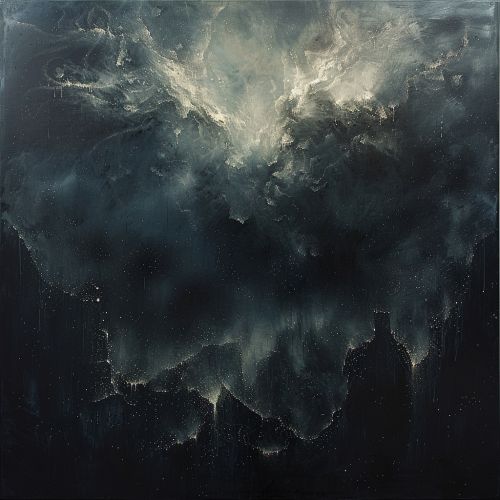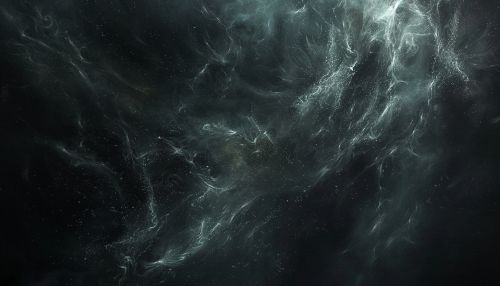Chaos (cosmogony)
Origins of Chaos
In the realm of cosmogonical studies, Chaos is a term that traces its roots back to ancient Greek and Hellenistic philosophies. It is often depicted as the primordial void from which everything in the universe emerged. The concept of Chaos is not unique to Greek cosmogony, but is found in various forms in numerous other mythological and religious traditions around the world.


Greek Cosmogony
In Greek cosmogony, Chaos was the first thing to exist. The term "Chaos" in ancient Greek texts, such as Hesiod's Theogony, is often translated as "yawning void" or "gap". However, its interpretation is a subject of ongoing scholarly debate. Some scholars suggest that Chaos may refer to a state of disorder or confusion, while others propose that it represents a gaping void where matter was created.
Chaos in Other Traditions
The concept of a primordial chaos is not exclusive to Greek cosmogony. It is a common theme in many other cosmogonical traditions, including those of the ancient Egyptians, Mesopotamians, and Chinese.
Egyptian Cosmogony
In ancient Egyptian cosmogony, the world was believed to have emerged from an infinite, lifeless sea known as Nu or Nun. This primordial water was often associated with chaos, similar to the Greek concept.
Mesopotamian Cosmogony
In Mesopotamian cosmogony, the universe was formed from the fusion of two primordial entities, Apsu (fresh water) and Tiamat (salt water). The ensuing chaos gave birth to the first gods.
Chinese Cosmogony
In Chinese cosmogony, the universe began as a chaotic mass known as Hundun. This chaos eventually coalesced into a cosmic egg, from which the world and all its components emerged.
Chaos in Modern Cosmology
In modern cosmology, the concept of chaos has taken on new meanings. It is often associated with the Big Bang theory, which posits that the universe originated from a state of high density and temperature, and has been expanding ever since. This initial state is sometimes likened to the primordial chaos of ancient cosmogonies.
